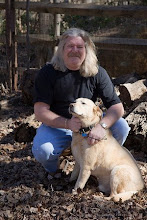-------------------------------------
Obama signed the executive order on the divisive stem cell issue and a memo addressing what he called scientific integrity before an East Room audience packed with scientists. He laced his remarks with several jabs at the way science was handled by former President George W. Bush.
"Promoting science isn't just about providing resources, it is also about protecting free and open inquiry," Obama said. "It is about letting scientists like those here today do their jobs, free from manipulation or coercion, and listening to what they tell us, even when it's inconvenient especially when it's inconvenient. It is about ensuring that scientific data is never distorted or concealed to serve a political agenda and that we make scientific decisions based on facts, not ideology."
He said his memorandum is meant to restore "scientific integrity to government decision-making." He called it the beginning of a process of ensuring his administration bases its decision on sound science; appoints scientific advisers based on their credentials, not their politics; and is honest about the science behind its decisions.
Fulfilling a campaign promise, Obama signed the order that on stem cell research that supporters believe could uncover cures for serious ailments from diabetes to paralysis. Proponents from former first lady Nancy Reagan to the late actor Christopher Reeve had pushed for ending the restrictions on research.
Obama paid tribute to Reeve, calling him a tireless advocate who was dedicated to raising awareness to the promise of research.
Obama's action reverses Bush's stem cell policy by undoing his 2001 directive that banned federal funding for research into stem lines created after Aug. 9, 2001.
The president said his administration would work aggressively to make up for the ground he said was lost due to Bush's decision, though it can't be known how much more federal money will be spent on the research until grants are applied for and issued.
"Medical miracles do not happen simply by accident," Obama declared.
Embryonic stem cells are master cells that can morph into any cell of the body. Scientists hope to harness them so they can create replacement tissues to treat a variety of diseases — such as new insulin-producing cells for diabetics, cells that could help those with Parkinson's disease or maybe even Alzheimer's, or new nerve connections to restore movement after spinal injury.
House Minority Leader John Boehner, R-Ohio, criticized Obama, saying in a statement that the president had "rolled back important protections for innocent life, further dividing our nation at a time when we need greater unity to tackle the challenges before us."
Bush limited the use of taxpayer money to only the 21 stem cell lines that had been produced before his decision. He argued he was defending human life because days-old embryos — although typically from fertility clinics and already destined for destruction — are destroyed to create the stem cell lines.
The Obama order reverses that without addressing a separate legislative ban, which precludes any federal money for the development of stem cell lines. The legislation, however, does not prevent funds for research on those lines created without federal funding.
Researchers say the newer lines created with private money during the period of the Bush ban are healthier and better suited to creating treatment for diseases.
Obama called his decision a "difficult and delicate balance," an understatement of the intense emotions generated on both sides of the long, contentious debate. He said he came down on the side of the majority of Americans who support increased federal funding for the research, both because strict oversight would prevent problems and because of the great and lifesaving potential it holds.
"Rather than furthering discovery, our government has forced what I believe is a false choice between sound science and moral values," Obama said. "In this case, I believe the two are not inconsistent. As a person of faith, I believe we are called to care for each other and work to ease human suffering."
Obama warned against overstating the eventual benefits of the research, but he said his administration "will vigorously support scientists who pursue this research," taking another slap at Bush in the process.
"I cannot guarantee that we will find the treatments and cures we seek. No president can promise that. But I can promise that we will seek them actively, responsibly, and with the urgency required to make up for lost ground," he said.
It's a matter of competitive advantage globally as well, the president argued.
"When government fails to make these investments, opportunities are missed. Promising avenues go unexplored," Obama said.
But the president was insistent that his order would not open the door to human cloning.
"We will develop strict guidelines, which we will rigorously enforce, because we cannot ever tolerate misuse or abuse," Obama said. "And we will ensure that our government never opens the door to the use of cloning for human reproduction. It is dangerous, profoundly wrong, and has no place in our society, or any society."
